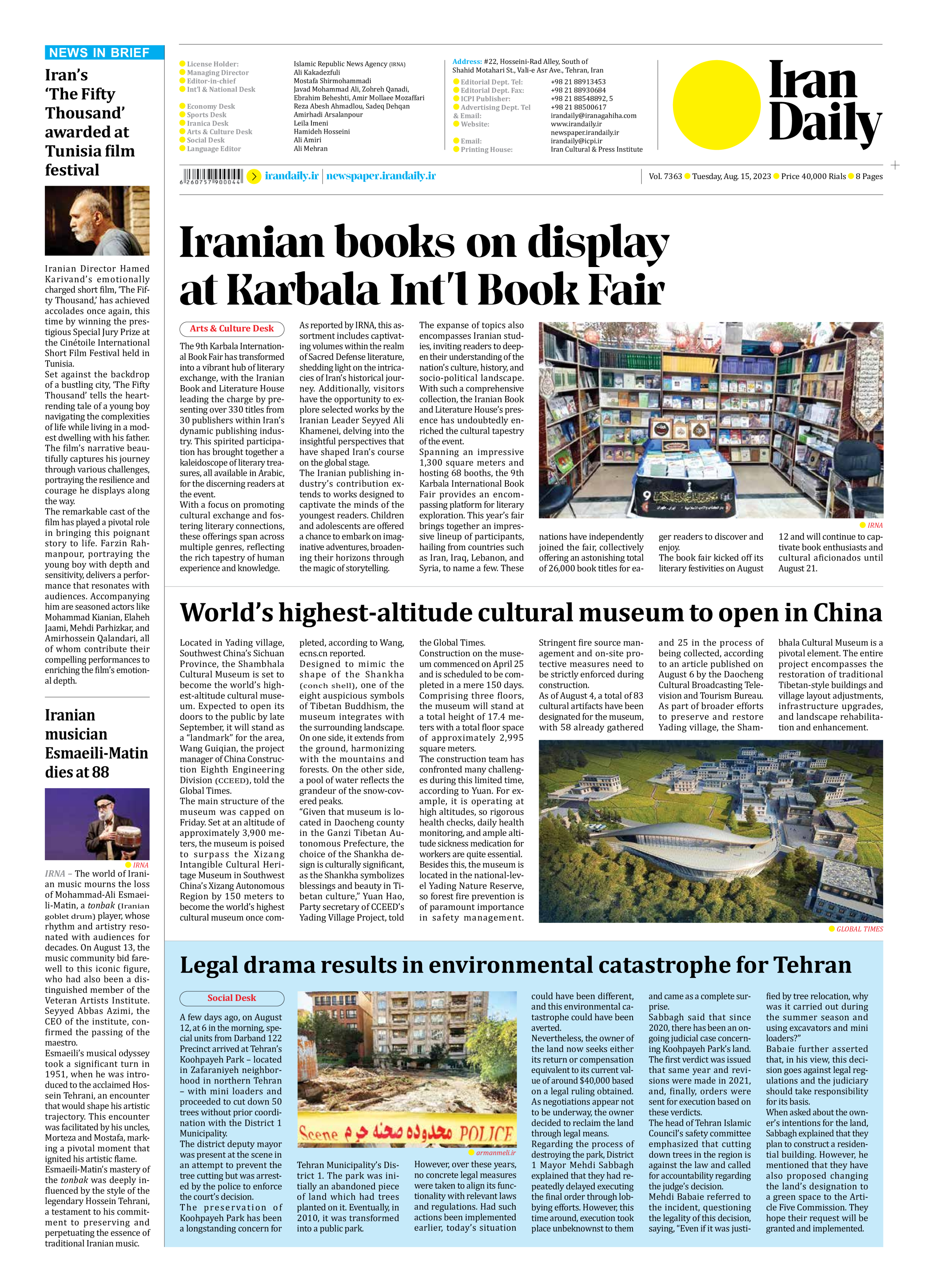
World’s highest-altitude cultural museum to open in China
Located in Yading village, Southwest China’s Sichuan Province, the Shambhala Cultural Museum is set to become the world’s highest-altitude cultural museum. Expected to open its doors to the public by late September, it will stand as a “landmark” for the area, Wang Guiqian, the project manager of China Construction Eighth Engineering Division (CCEED), told the Global Times.
The main structure of the museum was capped on Friday. Set at an altitude of approximately 3,900 meters, the museum is poised to surpass the Xizang Intangible Cultural Heritage Museum in Southwest China’s Xizang Autonomous Region by 150 meters to become the world’s highest cultural museum once completed, according to Wang, ecns.cn reported.
Designed to mimic the shape of the Shankha (conch shell), one of the eight auspicious symbols of Tibetan Buddhism, the museum integrates with the surrounding landscape.
On one side, it extends from the ground, harmonizing with the mountains and forests. On the other side, a pool of water reflects the grandeur of the snow-covered peaks.
“Given that museum is located in Daocheng county in the Ganzi Tibetan Autonomous Prefecture, the choice of the Shankha design is culturally significant, as the Shankha symbolizes blessings and beauty in Tibetan culture,” Yuan Hao, Party secretary of CCEED’s Yading Village Project, told the Global Times.
Construction on the museum commenced on April 25 and is scheduled to be completed in a mere 150 days. Comprising three floors, the museum will stand at a total height of 17.4 meters with a total floor space of approximately 2,995 square meters.
The construction team has confronted many challenges during this limited time, according to Yuan. For example, it is operating at high altitudes, so rigorous health checks, daily health monitoring, and ample altitude sickness medication for workers are quite essential.
Besides this, the museum is located in the national-level Yading Nature Reserve, so forest fire prevention is of paramount importance in safety management. Stringent fire source management and on-site protective measures need to be strictly enforced during construction.
As of August 4, a total of 83 cultural artifacts have been designated for the museum, with 58 already gathered and 25 in the process of being collected, according to an article published on August 6 by the Daocheng Cultural Broadcasting Television and Tourism Bureau.
As part of broader efforts to preserve and restore Yading village, the Shambhala Cultural Museum is a pivotal element. The entire project encompasses the restoration of traditional Tibetan-style buildings and village layout adjustments, infrastructure upgrades, and landscape rehabilitation and enhancement.







